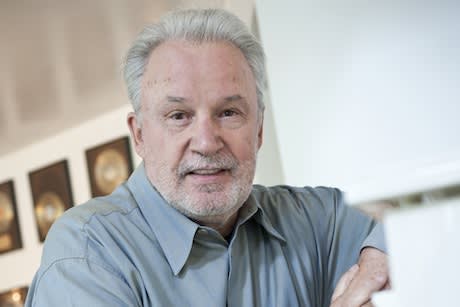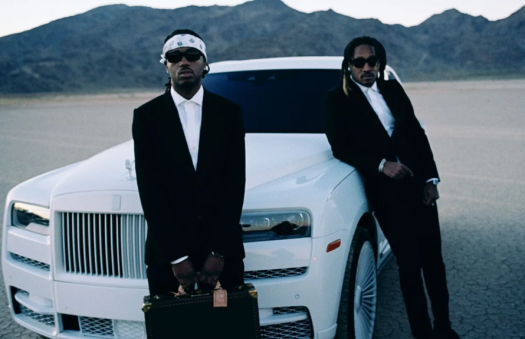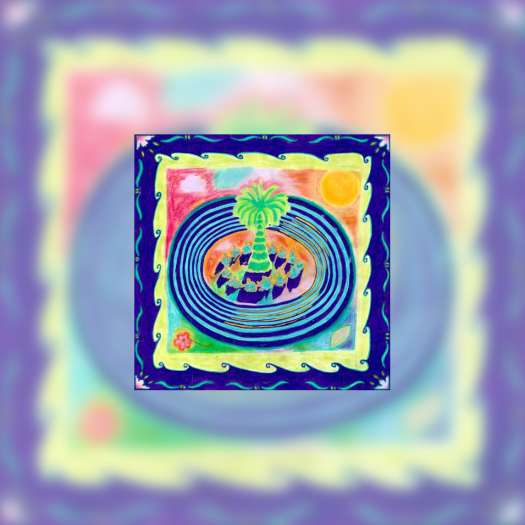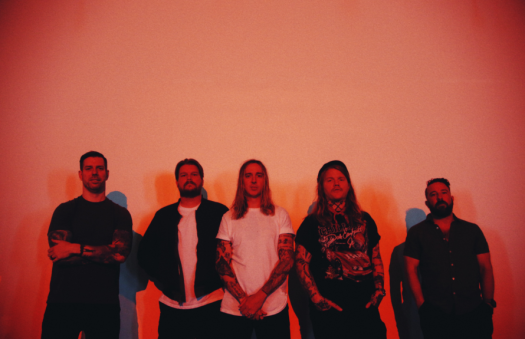Awash in the reflected light of Daft Punk, it seems like Giorgio Moroder is finally getting his due. The Godfather of synth music created classics like Donna Summer's "I Feel Love" and his own epic anthem, "The Chase" — not to mention some stellar full-lengths of his own and production work with David Bowie, Nile Rodgers and Blondie — before fading behind the disco backlash of the late '70s. A few weeks before his first American DJ night (ever!) in New York, Moroder is as excited by his rising stock as he is humble about the now-ubiquity of a sound he helped pioneer.
How are you today?
Good, good. I'm getting ready for the gig in New York with Red Bull. I'm busy, busy.
You'll be DJing there, correct?
Yeah. My first DJ gig in the States.
Is it exciting?
Yeah! I don't know the disco, but I hear it's beautiful and has a great system, so I'm preparing the menu, the songs, and I have probably 30 of my songs. Some very small, maybe 15 to 20 second stuff and some longer, but I think it's going to be great, this combination of all my songs. I may play a little live, maybe for a few minutes. It should be nice.
You're now acknowledged as a legend in the genre of disco and electronic music in general. How does that feel?
I'm quite happy. I got the Google alerts, where you read about you, and for the last several years, I have one or two alerts a week or more, but now, with the song with Daft Punk, it's really crazy. I probably did 50 interviews in the last three or four weeks. It's nice, and especially what Thomas [Bangalter] is writing and telling in interviews, it's quite nice to hear all that stuff.
Thomas told me that they were like directors of a film, making this album. Did you get that sense when working with them?
Well, you know, I wasn't really involved that much with the song. I just know that Thomas wanted to have some going back to the studio roots of disco — having the bass, having a real drummer, guitars, and maybe Fender Rhodes, and not using any samples, or very few. That was the concept, and I only heard the album once, but I think the album is phenomenal, especially the song with Paul Williams, "Touch." Absolutely great song. The whole album is incredible.
How much input did you have in the writing of "Giorgio by Moroder"? Did you not play the synth line?
No! They did not let me get involved at all! Actually, just about a year ago, Thomas asked me if I wanted to tell the story of my life. Then they would know what to do with it. We got down in the studio in Paris, and I was just talking, talking. I was thinking, "Hmm, what is he going to do with this?" I thought he may take some words, or put some effects in. I didn't have any idea. Then, six months ago, I was in Paris working in the same studio where they were working, and I asked their engineer, "So how is the song coming?" He said, "Oh, it's great." I said, "Can you tell me what it is?" "No way, no way." He didn't tell me anything. So, I was quite surprised the way the whole thing turned out.
That synth really sounds like one of your songs. Were you struck by that when you heard it?
Well, when you have a bass line going, like, "deddle-deddle-deddle-deddle-deddle-[pause-]deddle," whatever you do, it sounds — I'm not saying similar [to me, but] — in that style. It reminds you of "I Feel Love," right? It's a great line, and yeah, it reminds me, in a sense, of the bass line in the style of "I Feel Love."
You've said that Guy-Manuel and Thomas are perfectionists. How deep would they go? Do you know?
I just know that whatever they do, it's perfection. Thomas [and I] were talking about vocoders. It's an easy instrument, but if you want to do it really nice, it's very difficult. He was telling me that it took them, he said, a week just to find the right synthesizer, the right microphone, the right ways to balance the voice and the vocoder. It took them a week of experimenting which one sounds the best. When I would do it, it would take maybe an hour. I wouldn't research too much, I'd just do it. They are so much detailed-oriented, it's scary. It's one of the reasons that album took so long. But if you listen to the vocoder sounds, they are so well done. I think it's the second song on the album where the vocoder sounds absolutely beautiful, exactly like a human voice. It's interesting that they tried to get the human voice with a synthesizer, which I think is great.
Despite your contributions to club culture, you've mentioned that you're not a night person, and that you don't go out that much.
Well, when I was working, like the '70s and '80s, I did not have time. I was working day and night. I remember one year, I had two free weekends. If you work until eight, nine, then, sometimes 12 o'clock at night, I just didn't want to go out. I rarely went out. I loved to finish around eight, have a nice dinner. You hear music all day long, so generally speaking, I'm happy if I can get away. I don't know basically anything about discotheques, especially the last few years. Actually, I went to Ibiza for a few days. I knew that it was crazy down there, but I didn't know the extent of it. It's absolutely madhouse down there, what's going on. Very interesting.
Do you think Daft Punk operate the same way as you? They don't seem like party guys. They seem more interested in the craft than the lifestyle.
Yeah, I think so too. Plus, they don't want anybody to know that they are Daft Punk, right? Visually, not too many people know them. I did not have the feel that they would go out every night. They have a nice little community in Paris, they're all good friends with AIR and with Phoenix. Plus, Guillaume has family with two kids. I don't have any idea, but I don't think they're night persons.
You said in your collaborator video that people need "new dance music." What made you say that?
The idea was the way Thomas described the new song. He said something like, with the technology today, you don't even need a computer, you can do [electronic music] basically on an iPad. To do electronic music, it's getting so easy, and unfortunately, a lot of stuff sounds the same. He came up with this concept, on this album, to use instruments, to use more vocals, and that's what I meant. EDM is a little... It has not enough soul, so give a little bit of soul back with the bass. The other day, I did a demo just to go back to what I did 30 years ago, just to hear how an electronic sound could sound if you add bass, guitar, and Fender Rhodes. It's quite interesting. That's what I meant by some new music, which Daft Punk did so well with this album.
What new music, other than Daft Punk, are you listening to these days?
Actually, I'm not a great music listener. In the States, I just listen to Kiss FM, which is the program that has the Top 100. That's the only thing I listen to. It really shows me what's doing well, what's new, so that's the stuff I listen to.
Are there any of those songs or artists in particular that you like?
I love almost everything David Guetta does. He comes up with great melodies, great arrangements. He's one of the guys. I have the feeling, from talking to people here, that a lot of those dance guys, they're all kind of going back to doing music in the traditional way, where you have an intro, a verse, a chorus, a bridge, a fade, instead of having four bars, eight bars, and then chopping them up and connecting them. I was talking to a record company and the A&R guy said that's exactly what some of those guys are doing.
Well, thank you so much for talking, Mr. Moroder.
Great! See you in Canada one day!
How are you today?
Good, good. I'm getting ready for the gig in New York with Red Bull. I'm busy, busy.
You'll be DJing there, correct?
Yeah. My first DJ gig in the States.
Is it exciting?
Yeah! I don't know the disco, but I hear it's beautiful and has a great system, so I'm preparing the menu, the songs, and I have probably 30 of my songs. Some very small, maybe 15 to 20 second stuff and some longer, but I think it's going to be great, this combination of all my songs. I may play a little live, maybe for a few minutes. It should be nice.
You're now acknowledged as a legend in the genre of disco and electronic music in general. How does that feel?
I'm quite happy. I got the Google alerts, where you read about you, and for the last several years, I have one or two alerts a week or more, but now, with the song with Daft Punk, it's really crazy. I probably did 50 interviews in the last three or four weeks. It's nice, and especially what Thomas [Bangalter] is writing and telling in interviews, it's quite nice to hear all that stuff.
Thomas told me that they were like directors of a film, making this album. Did you get that sense when working with them?
Well, you know, I wasn't really involved that much with the song. I just know that Thomas wanted to have some going back to the studio roots of disco — having the bass, having a real drummer, guitars, and maybe Fender Rhodes, and not using any samples, or very few. That was the concept, and I only heard the album once, but I think the album is phenomenal, especially the song with Paul Williams, "Touch." Absolutely great song. The whole album is incredible.
How much input did you have in the writing of "Giorgio by Moroder"? Did you not play the synth line?
No! They did not let me get involved at all! Actually, just about a year ago, Thomas asked me if I wanted to tell the story of my life. Then they would know what to do with it. We got down in the studio in Paris, and I was just talking, talking. I was thinking, "Hmm, what is he going to do with this?" I thought he may take some words, or put some effects in. I didn't have any idea. Then, six months ago, I was in Paris working in the same studio where they were working, and I asked their engineer, "So how is the song coming?" He said, "Oh, it's great." I said, "Can you tell me what it is?" "No way, no way." He didn't tell me anything. So, I was quite surprised the way the whole thing turned out.
That synth really sounds like one of your songs. Were you struck by that when you heard it?
Well, when you have a bass line going, like, "deddle-deddle-deddle-deddle-deddle-[pause-]deddle," whatever you do, it sounds — I'm not saying similar [to me, but] — in that style. It reminds you of "I Feel Love," right? It's a great line, and yeah, it reminds me, in a sense, of the bass line in the style of "I Feel Love."
You've said that Guy-Manuel and Thomas are perfectionists. How deep would they go? Do you know?
I just know that whatever they do, it's perfection. Thomas [and I] were talking about vocoders. It's an easy instrument, but if you want to do it really nice, it's very difficult. He was telling me that it took them, he said, a week just to find the right synthesizer, the right microphone, the right ways to balance the voice and the vocoder. It took them a week of experimenting which one sounds the best. When I would do it, it would take maybe an hour. I wouldn't research too much, I'd just do it. They are so much detailed-oriented, it's scary. It's one of the reasons that album took so long. But if you listen to the vocoder sounds, they are so well done. I think it's the second song on the album where the vocoder sounds absolutely beautiful, exactly like a human voice. It's interesting that they tried to get the human voice with a synthesizer, which I think is great.
Despite your contributions to club culture, you've mentioned that you're not a night person, and that you don't go out that much.
Well, when I was working, like the '70s and '80s, I did not have time. I was working day and night. I remember one year, I had two free weekends. If you work until eight, nine, then, sometimes 12 o'clock at night, I just didn't want to go out. I rarely went out. I loved to finish around eight, have a nice dinner. You hear music all day long, so generally speaking, I'm happy if I can get away. I don't know basically anything about discotheques, especially the last few years. Actually, I went to Ibiza for a few days. I knew that it was crazy down there, but I didn't know the extent of it. It's absolutely madhouse down there, what's going on. Very interesting.
Do you think Daft Punk operate the same way as you? They don't seem like party guys. They seem more interested in the craft than the lifestyle.
Yeah, I think so too. Plus, they don't want anybody to know that they are Daft Punk, right? Visually, not too many people know them. I did not have the feel that they would go out every night. They have a nice little community in Paris, they're all good friends with AIR and with Phoenix. Plus, Guillaume has family with two kids. I don't have any idea, but I don't think they're night persons.
You said in your collaborator video that people need "new dance music." What made you say that?
The idea was the way Thomas described the new song. He said something like, with the technology today, you don't even need a computer, you can do [electronic music] basically on an iPad. To do electronic music, it's getting so easy, and unfortunately, a lot of stuff sounds the same. He came up with this concept, on this album, to use instruments, to use more vocals, and that's what I meant. EDM is a little... It has not enough soul, so give a little bit of soul back with the bass. The other day, I did a demo just to go back to what I did 30 years ago, just to hear how an electronic sound could sound if you add bass, guitar, and Fender Rhodes. It's quite interesting. That's what I meant by some new music, which Daft Punk did so well with this album.
What new music, other than Daft Punk, are you listening to these days?
Actually, I'm not a great music listener. In the States, I just listen to Kiss FM, which is the program that has the Top 100. That's the only thing I listen to. It really shows me what's doing well, what's new, so that's the stuff I listen to.
Are there any of those songs or artists in particular that you like?
I love almost everything David Guetta does. He comes up with great melodies, great arrangements. He's one of the guys. I have the feeling, from talking to people here, that a lot of those dance guys, they're all kind of going back to doing music in the traditional way, where you have an intro, a verse, a chorus, a bridge, a fade, instead of having four bars, eight bars, and then chopping them up and connecting them. I was talking to a record company and the A&R guy said that's exactly what some of those guys are doing.
Well, thank you so much for talking, Mr. Moroder.
Great! See you in Canada one day!




